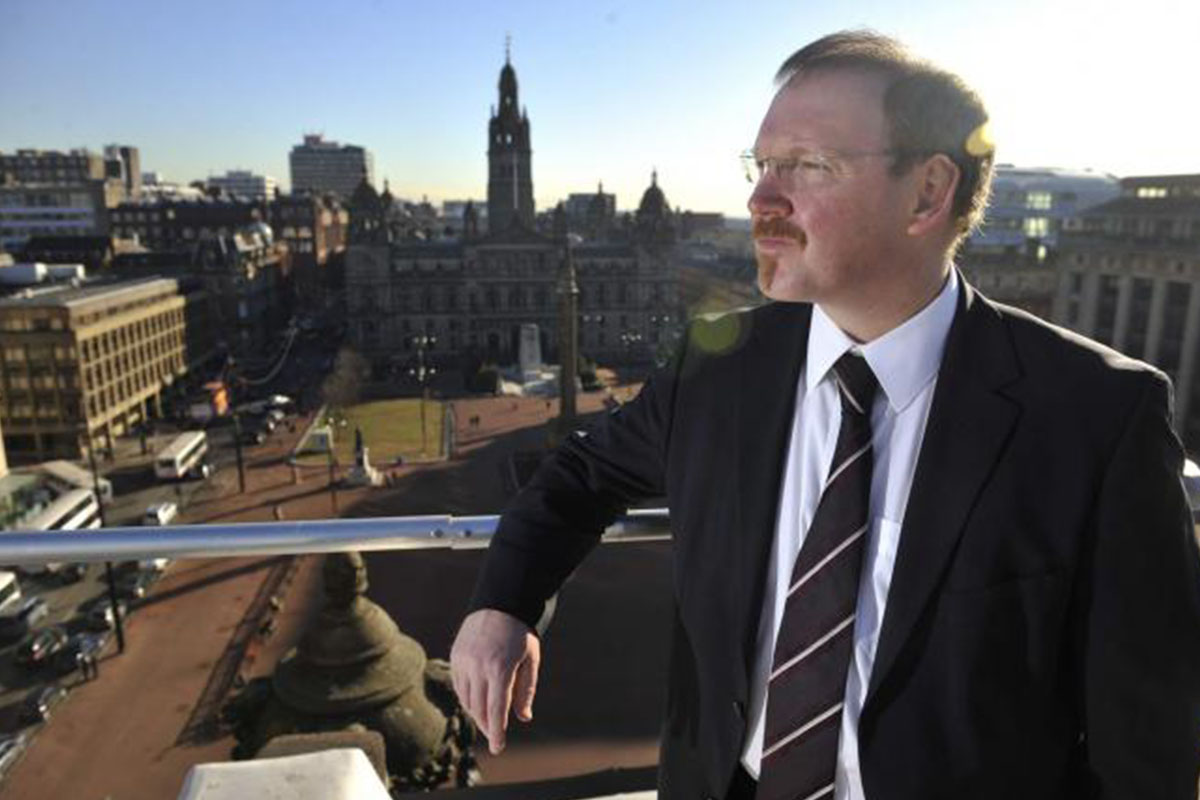
21 Feb 2024
By Stuart Patrick, Chief Executive of Glasgow Chamber of Commerce
This week the British Chambers of Commerce published a document setting out 16 policies aimed at boosting the growth of local economies, a topic which is of course dear to the heart of a Chamber of Commerce. Prominent among these proposals is a call for more devolution of powers to local and regional government to increase decision-making to those closest to the issues.
The idea of regional devolution is gathering pace. Last week Our Scottish Future – a think tank established by Gordon Brown – published a paper arguing for a substantial shift in powers to the regional level covering skills, transport, planning and economic development.
Last year Ian Stewart, a former Minister for the Scotland Office, launched a report for centre right think tank Onward explaining his thinking on the topic. He set out suggestions for a second round of city and regional growth deals now that Glasgow’s deal – which was the first in Scotland – is nearing its tenth anniversary.
Growing the power of regional government has cross party support and is already influencing government decisions. For example, The Scottish Government announced last summer that it was handing the Clyde Mission regeneration initiative to the Glasgow City Region along with £25m in support of heat decarbonisation projects and £1.5m for developing the regeneration master plan.
Councillor Susan Aitken also announced in November at the City Council’s State of the City Economy conference that the outline business case for the Clyde Metro will be taken forward by the Strathclyde Partnership for Transport.
James Wither’s report for the Scottish Government on the country’s post school skills system also argued for a greater role for regional employer boards in shaping skills delivery.
The UK Government has made its own moves in support of regional government passing funding direct to regional and local government to deliver economic development projects.
These have included the Shared Prosperity Fund which has been set up as the post Brexit alternative to European Structural Funds, Innovation Accelerator Partnerships designed to encourage greater business spend on research and development collaborations with universities and most recently Investment Zones, offering tax incentives and grant subsidies to help grow emerging industries.
Our experience of the Glasgow City Region team has been very positive. The Regional Intelligence Hub set up to provide credible data and analysis of the regional economy has been a great success with a recent impact on the development of a regional innovation plan. Their analysis of the region’s emerging technology clusters helps make a convincing argument for further investment in Glasgow’s economy. The regional team also ran a tight and effective process for deploying the £33m the UK Government made available to Glasgow’s Innovation Accelerator Partnership.
Moves have also been made to build the region’s partnership structures. Late last year the Glasgow City Region cabinet comprising the leaders of all eight local authorities agreed to recognise the Glasgow Economic Leadership as a regional body of senior industry leaders offering advice on the strategic development of Glasgow’s economy.
Why though does Glasgow Chamber so warmly welcome all these moves to a more powerful regional structure? A look down the list of 10 projects which the Chamber is championing partly explains. The Clyde Metro is a regional transport project designed to improve the public transport choices for Greater Glasgow residents. The Clyde Maritime project aims to support the growth of marine industries along the length of the river.
The City Centre recovery project, too, is a City Council led initiative which would have regional economic impact. The three Innovation Districts led by the Universities of Strathclyde and Glasgow will be the catalysts for building a powerful regional innovation eco-system. And one project – the Regional Skills System – is a very specifically regional project arguing for greater flexibility in the allocation of skills funding to solve skill shortages.
It is the Chamber’s belief that all of these projects would move faster and more effectively if they were nationally backed and regionally delivered. Both national governments would do well to maintain the momentum they are creating for regional government.